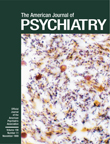Length of Therapy for Depression Treatment
To the Editor: I read with interest the recent article by Frederick W. Reimherr, M.D., and colleagues (1) and congratulate the authors for studying the clinically important topic of optimal length of therapy for the treatment of depression.
The value of this contribution is lessened, however, by their failure to address the risks associated with continuation therapy. Other reports of antidepressant continuation therapy (2–5) have included an assessment of adverse experiences, often with comparisons of adverse experiences occurring during acute therapy and long-term treatment. Data regarding adverse experiences are as helpful to the clinician as are descriptions of efficacy parameters.
As the authors mention in their introductory remarks, patients may be reluctant to participate in long-term medication therapy out of concern for side effects. I question how the authors can adequately determine the optimal length of therapy without an assessment of treatment risks and the hope that future studies balance education about the risks involved with information regarding benefits.
1. Reimherr FW, Amsterdam JD, Quitkin FM, Rosenbaum JF, Fava M, Zajecka J, Beasley CM Jr, Michelson D, Roback P, Sundell K: Optimal length of continuation therapy in depression: a prospective assessment during long-term fluoxetine treatment. Am J Psychiatry 1998; 155:1247–1253Google Scholar
2. Doogan DP, Caillard V: Sertraline in the prevention of depression. Br J Psychiatry 1992; 160:217–222Crossref, Medline, Google Scholar
3. Montgomery SA, Dunbar G: Paroxetine is better than placebo in relapse prevention and the prophylaxis of recurrent depression. Int Clin Psychopharmacol 1993; 8:189–195Crossref, Medline, Google Scholar
4. Ohrberg S, Christiansen PE, Severin B, Calberg H, Nilakantan B, Borup A, Sogaard J, Larsen SB, Loldrup D, Bahr B, Siebuhr N, Gregersen B, Jacobsen F, Liljeström M, Manniche PM, Bech P: Paroxetine and imipramine in the treatment of depressive patients in psychiatric practice. Acta Psychiatr Scand 1992; 86:437–444Crossref, Medline, Google Scholar
5. Van Moffaert M, Bartholome F, Cosyns P, De Nayer AR, Mertens C: A controlled comparison of sertraline and fluoxetine in acute and continuation treatment of major depression. Human Psychopharmacology 1995; 10:393–405Crossref, Google Scholar



